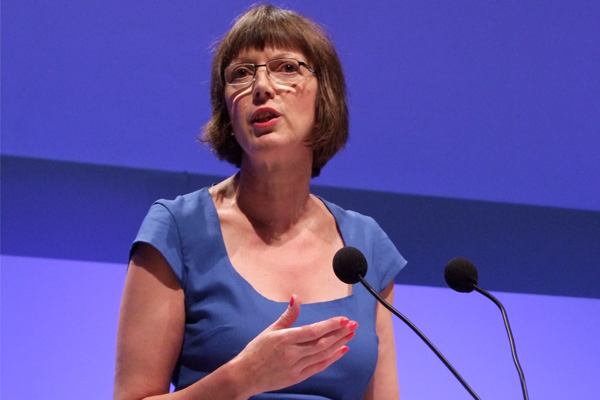The unemployment rate for Black and Minority Ethnic (BME) workers has risen at more than twice the speed for White employees; and is now exceeding worst-case projections, according to the TUC.
Its latest analysis of figures from the Office for National Statistics (ONS) has revealed that the BME unemployment rate shot up from 5.8% to 9.5% between the final quarter of 2019 and the final quarter of 2020; an increase of nearly-two thirds. Over the same period the unemployment rate for White workers rose from 3.4% to 4.5%; an increase of just under a third.
BME unemployment now exceeds worst-case projections. The Office for Budget Responsibility has forecast that the unemployment rate for all workers will peak at 7.5% in the second quarter of 2021. However, TUC’s latest analysis reveals that the number of BME people out of work is “already far exceeding this worst-case scenario prediction”.
The unemployment rate for Black African and Caribbean workers has actually risen to 13.8%. That’s more than three times the rate for White unemployment. Additionally one in 10 BME women are now unemployed.

Image credit: Pexels
URGENT ACTION TO END INEQUALITY
The new analysis comes as unions, charities and campaigners have signed a joint statement calling on the Prime Minister to take the action he pledged last summer to end structural racism and inequality. The statement calls for the Commission on Race and Ethnic Disparities to publish its report into structural racism without further delay. It was due to be issued in January but has now been put back twice.
The Sewell Commission on Race and Ethnic Disparities was set up in response to the disproportionate deaths of BME people during the pandemic. The statement warns that the situation for BME people is now ‘urgent’.
GLARING DISPARITIES
Despite progress on equality, change is urgent, noted the statement. Not only are BME people are three times more likely to die from Covid-19, but the BME unemployment rate is running at almost double that of White workers. Additionally, BME workers in London experience a 24% pay gap, as reported.
The statement also warns ministers against pitching White and BME working people against each other. “The UK must address the inequal opportunities faced by low income people; and the glaring disparities across the regions and nations of the UK alongside the racism and structural discrimination face by BME communities,” it stated. “But we will not stand by as White and BME working people are pitched against each other.”

Image credit: Pexels
URGENT ACTION NEEDED NOW
The statement calls on the Government to:
- Implement in full the recommendations from the seven reports commissioned since 2010: Lammy, Angiolini, Williams (Windrush), McGregor-Smith, Kline, Parker and Timpson.
- Set out a race equality strategy to guide the Covid-19 response.
- Introduce mandatory ethnicity pay reporting.
Commenting on the recent analysis, TUC’s General Secretary Frances O’Grady stated: “This pandemic has held up a mirror to the structural racism in our labour market – and wider society. “BME workers have borne the brunt of the economic impact of Covid-19, losing their jobs twice as quickly as white workers. And when BME workers have held on to their jobs, we know that they are more likely to be working in low-paid, insecure jobs that put them at greater risk from the virus.”
This is “evidence of the structural discrimination which has led to a disproportionate BME death rate from coronavirus”, she added. “This crisis has to be a turning point. As we emerge from the pandemic, we can’t allow these inequalities in our workplaces – and our society – to remain. Ministers must stop delaying and challenge the systemic racism and inequality that holds back BME people.”

SYSTEMIC RACE INEQUALITY
If the Government “cares about tackling deep seated structural racism it must deliver big now. Anything less will be a kick in the teeth for our communities”, remarked Lord Simon Woolley, former Chair of the government racial disparity unit. “The Government must stop pitting poor Black people against poor White people – and effectively deal with systemic race inequality.”
“Racism is at work and it exists,” added Dr Patrick Roach, The Chair of the TUC’s anti-racism task force and General Secretary of NASUWT. “There is clear and compelling evidence demonstrating the need for concerted action to eradicate the prejudice, discrimination and disadvantage that continue to deny many Black workers the opportunity to secure and progress in decent jobs and careers.
Roach believes that the impact of the pandemic has been “devastating for our economy, and especially for Black workers who are not only more likely lose their jobs but also to die at work”. A national plan to tackle racial disparities in employment and in the labour market must also address the root causes and confront them head on,” he added.







































